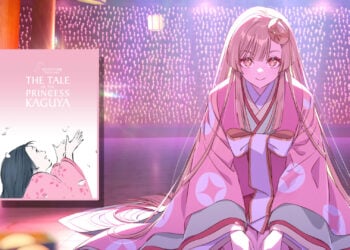The final moments of Andor Season 2 didn’t just conclude a television series—they completed one of the most meticulously crafted narrative bridges in Star Wars history. As the credits rolled on this critically acclaimed prequel, viewers witnessed the precise moment Cassian Andor’s journey dovetails into the opening scene of Rogue One: A Star Wars Story.
This wasn’t simply fan service; it was the culmination of 24 episodes of careful storytelling that transformed a minor character from a spinoff film into one of the franchise’s most compelling figures. Through its gripping finale, Andor accomplished what many thought impossible—it made us re-experience Rogue One with fresh eyes while standing as a remarkable achievement in its own right.
Table of Contents
What makes this connective tissue particularly brilliant is how showrunner Tony Gilroy planted seeds throughout both seasons that only blossom when viewed in context with the 2016 film. From subtle callbacks to major character arcs, the finale rewards attentive viewers with a masterclass in prequel storytelling. This analysis dissects every crucial moment from the final episode, explains how it reshapes our understanding of Rogue One, and explores what it means for the future of mature Star Wars storytelling.

The Final Mission: How Andor Last Stand Mirrors His First Appearance
The season’s closing sequence delivers a poetic full-circle moment as Cassian lands on the rainy planet of Morlana One—the very world where Rogue One begins. Through meticulous recreation of the film’s cinematography (right down to the angle of rainfall and the texture of his jacket), the show demonstrates how far this reluctant rebel has come. We now understand why the Cassian of Rogue One appears so weary when approached by the Rebellion—his journey has been longer and more morally complex than we ever imagined.
What makes this transition particularly powerful is the contrast between the two portrayals. Diego Luna’s performance in the finale shows us a Cassian who has shed his earlier cynicism but gained battle-worn pragmatism. The man who once asked “What have I sacrificed?” now knows the answer all too well. This emotional weight transforms what was originally a simple introductory scene in Rogue One into a profound character moment—we now see not just a spy meeting his contact, but a veteran soldier preparing for one last mission that will cost him everything.

The Rebel Alliance’s Birth Pains: Mon Mothma’s Crucial Decision
Perhaps the most significant revelation comes through Genevieve O’Reilly’s Mon Mothma, whose final scenes reveal the personal cost of founding the Rebel Alliance. Her decision to publicly denounce the Empire—knowing it will separate her from her daughter forever—gains heartbreaking context when we realize this is why she appears so strained in Rogue One. The show answers a question the film never asked: why does Mon look so world-weary when we first see her in the Rebel base?
The finale also clarifies the Alliance’s fractured state during Rogue One. Saw Gerrera’s extremism, the political infighting, and the reluctance to attack the Death Star all stem from events shown in Andor. This isn’t just continuity—it’s narrative alchemy that makes both stories richer. When Mon says “Many Bothans died to bring us this information” in Return of the Jedi, we now understand that line carries the weight of every difficult choice she made during Andor’s timeline.

K-2SO’s Origin: From Enemy Droid to Beloved Companion
One of the finale’s most satisfying moments comes in the form of Alan Tudyk’s K-2SO, whose reprogramming we finally witness. The scene where Cassian and his team capture an Imperial KX security droid gains tremendous emotional resonance when viewed as the beginning of one of Star Wars’ most endearing friendships. The dark humor of K-2’s deadpan delivery in Rogue One (“You’re being rescued. Please do not resist.”) now carries poignant significance—we’ve seen the violent circumstances that forged this unlikely bond.
This origin story also explains K-2’s unique personality among Star Wars droids. His sarcasm and bluntness aren’t just programming quirks—they’re reflections of Cassian’s own hardened worldview. The finale suggests that in reprogramming K-2, Cassian unconsciously created a droid version of his younger self, complete with the cynicism he’s now struggling to overcome. This adds layers to their Rogue One dynamic that simply didn’t exist before Andor.

Conclusion: A New Standard for Star Wars Storytelling
Andor’s finale doesn’t just connect to Rogue One—it fundamentally recontextualizes the film as the culmination of a much larger story. What appeared in 2016 to be a simple mission to steal Death Star plans now plays as the inevitable conclusion to years of rebellion-building and personal sacrifice. The series achieves the rarest of prequel feats: it makes the original work better while standing firmly on its own merits.
As the Star Wars universe continues expanding, Andor sets a new benchmark for mature, character-driven storytelling within the franchise. Its finale proves that even when we know the ending, the journey can still surprise us—and that the most compelling stories often lie in the spaces between what we thought we knew.
FAQs
1. Does Andor Season 2 explain how the Rebels got the Death Star plans?
While not shown directly, the season establishes the intelligence networks and sacrifices that made stealing the plans possible in Rogue One.
2. Will there be an Andor Season 3?
No, the series was always planned as a two-season story bridging Cassian’s origins to Rogue One’s events.








